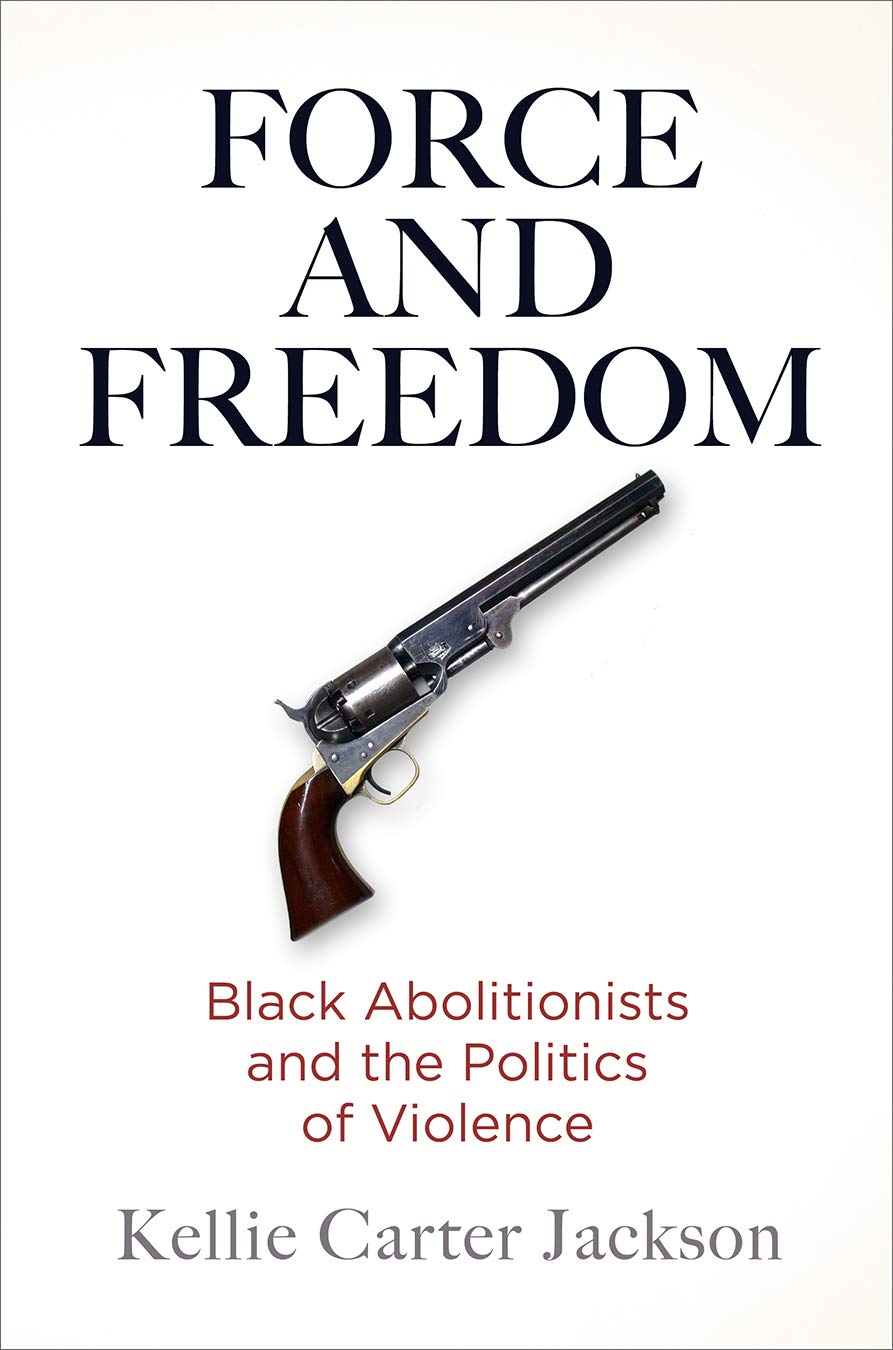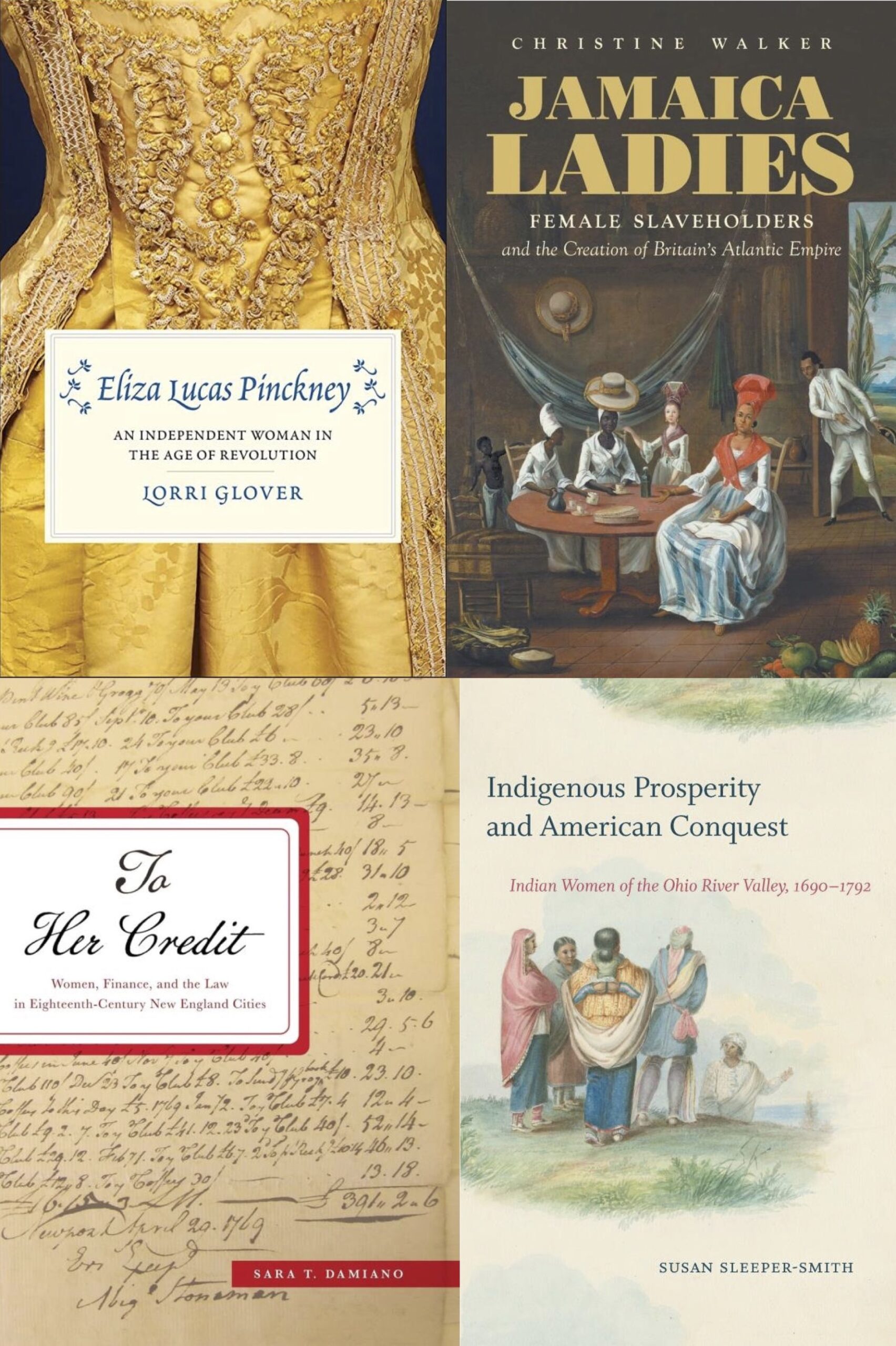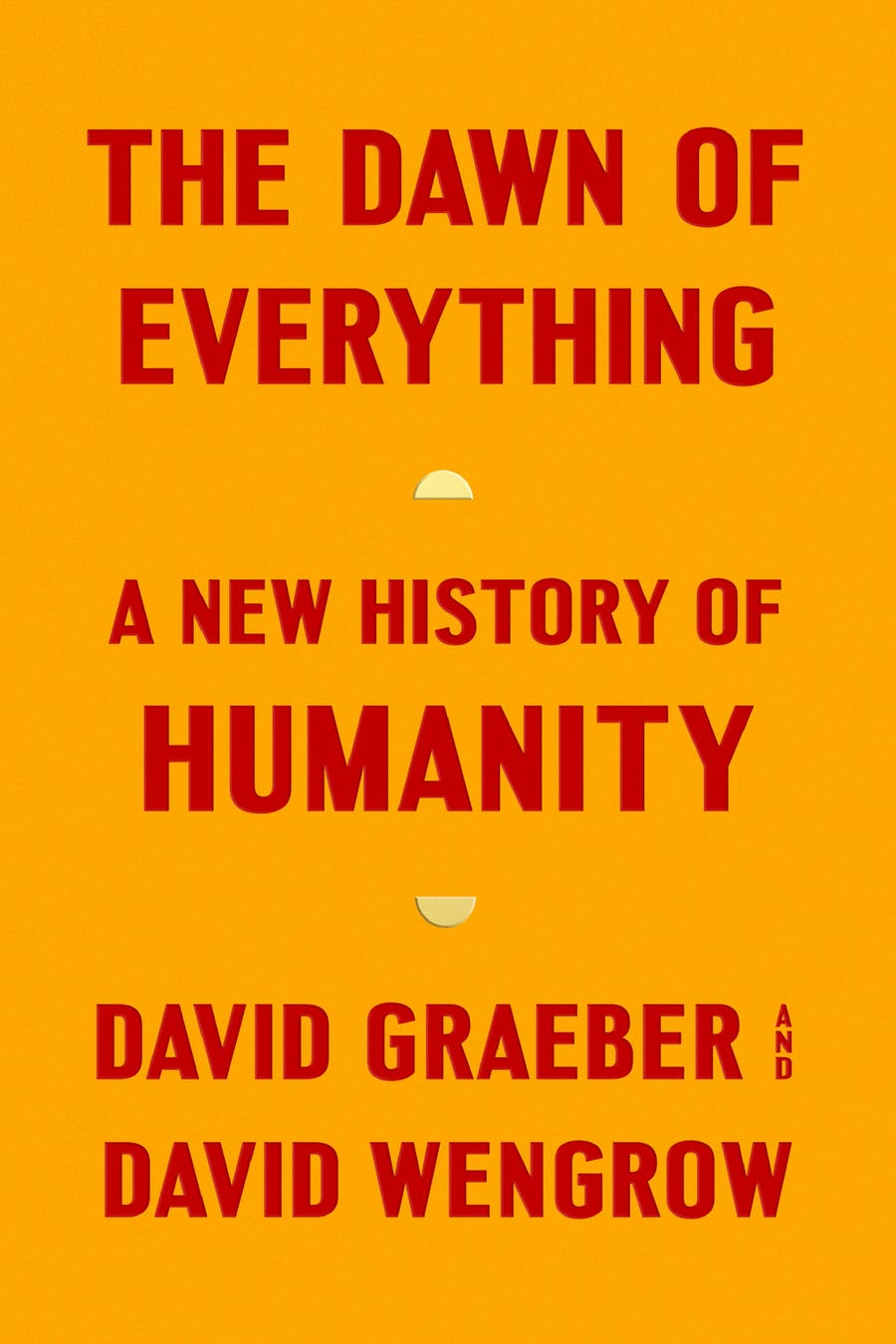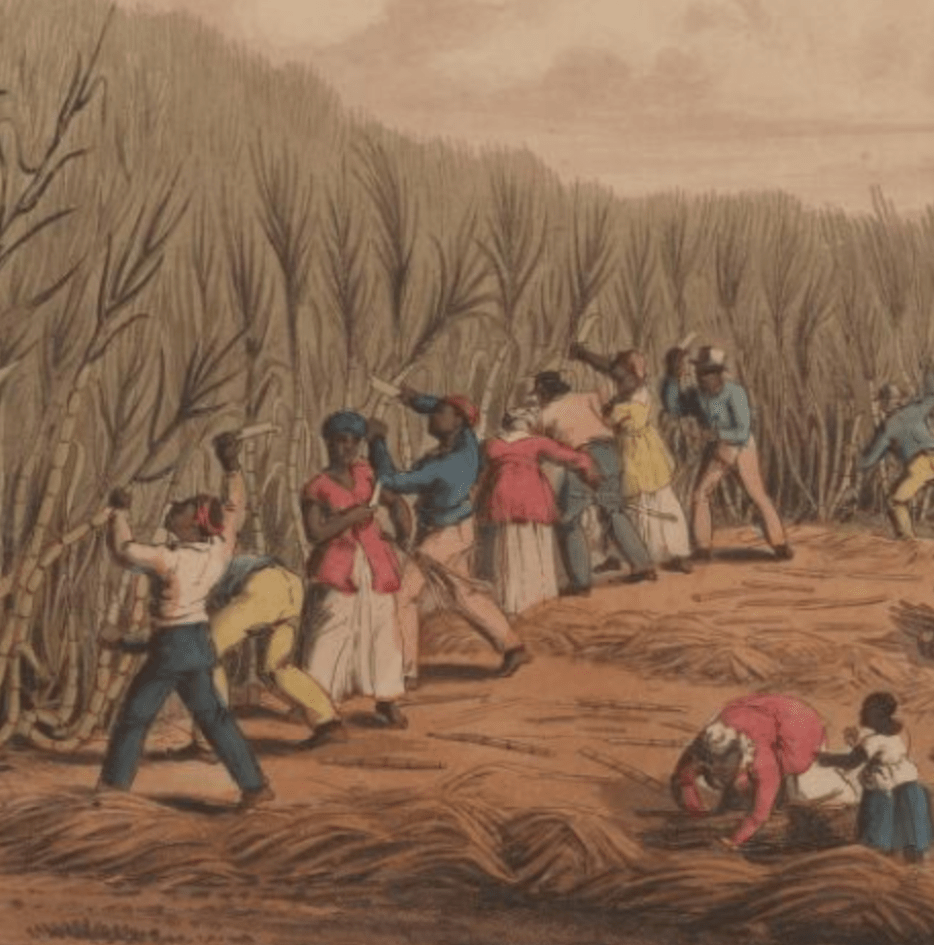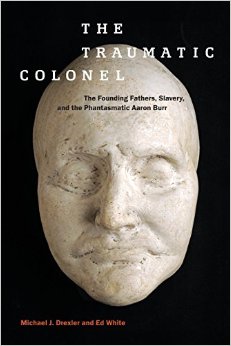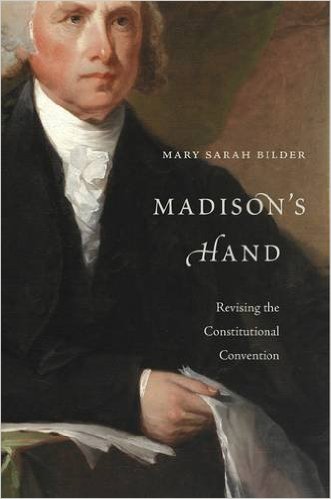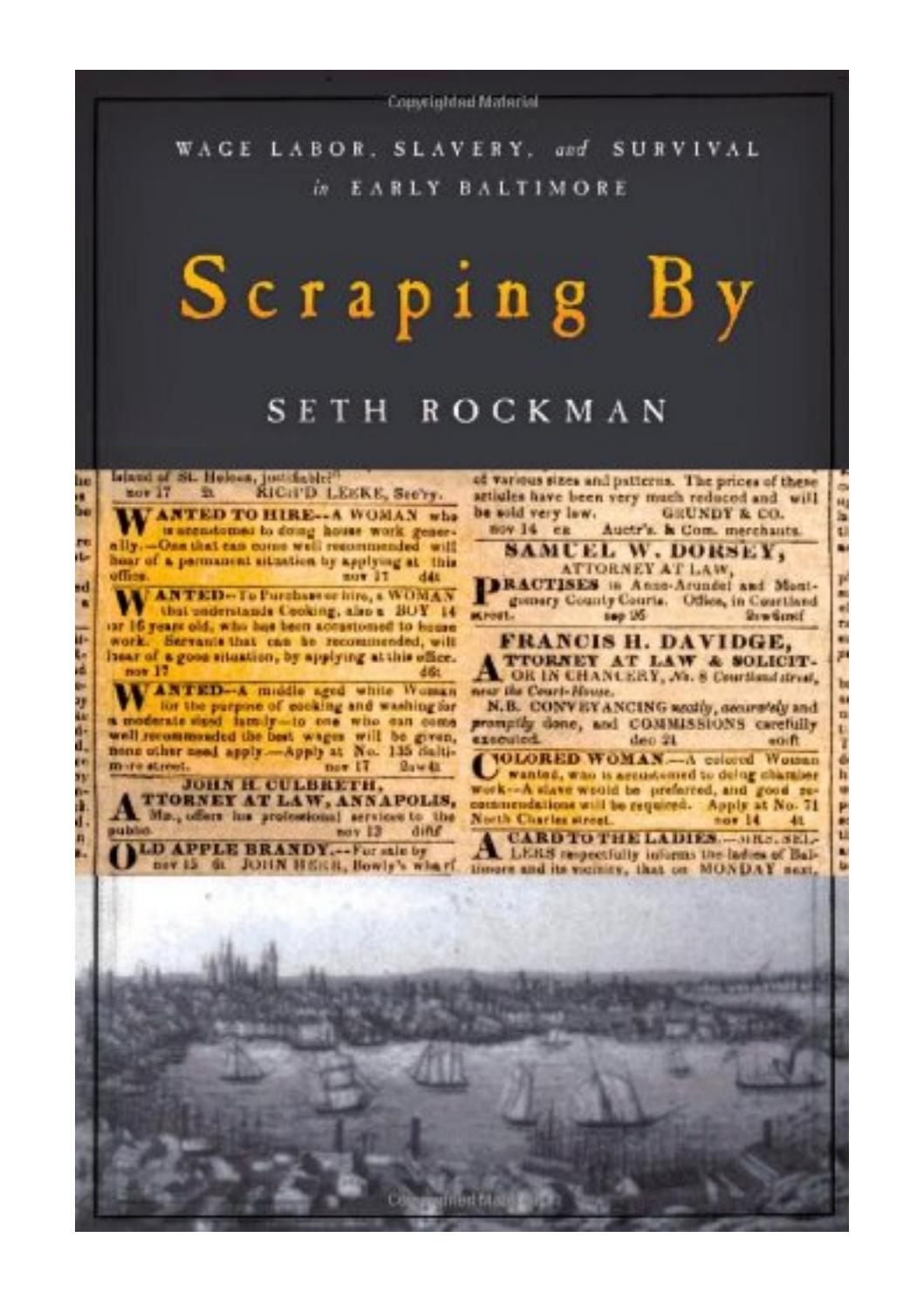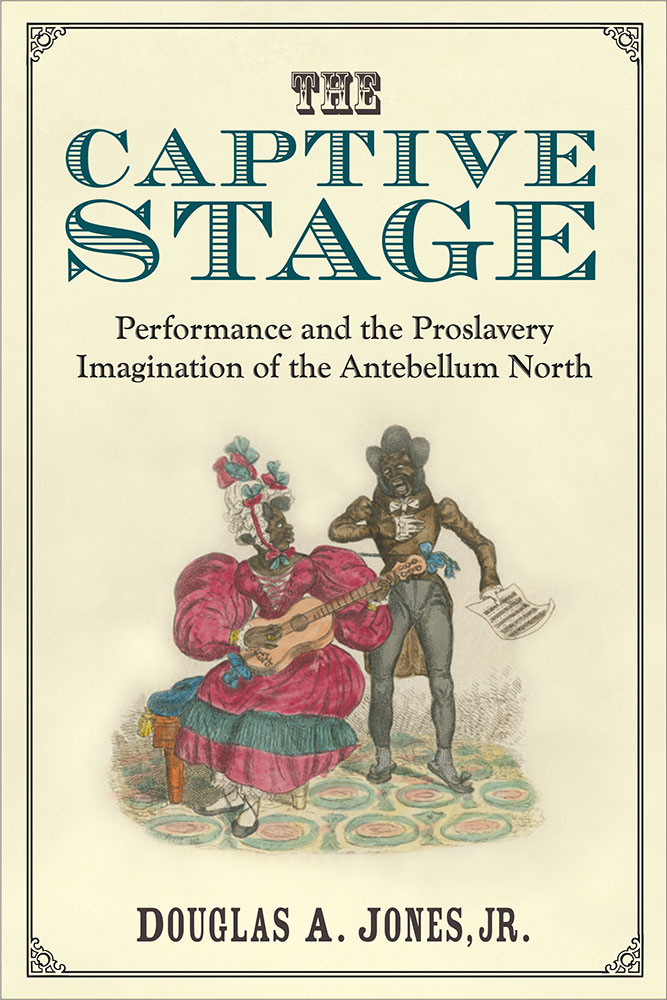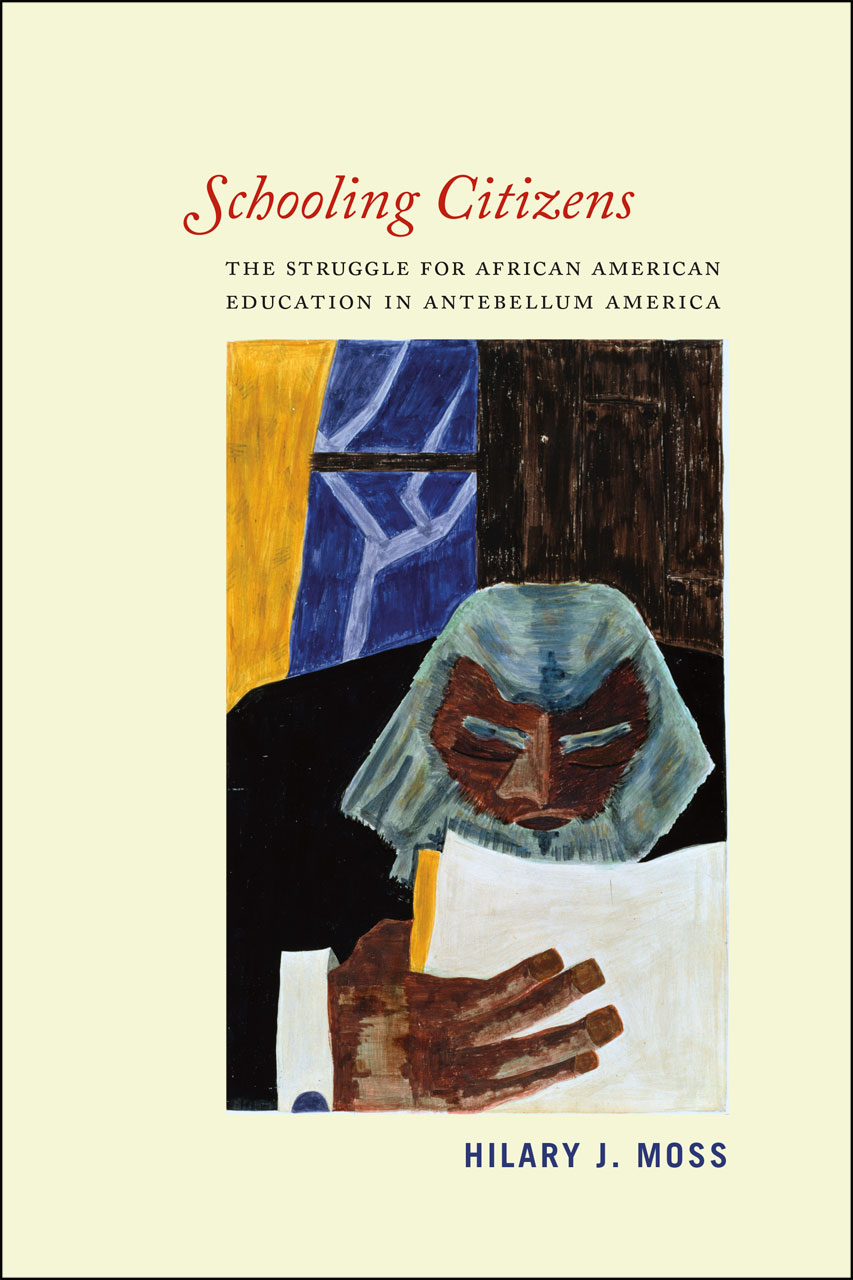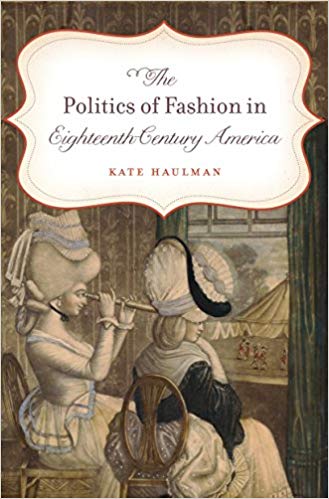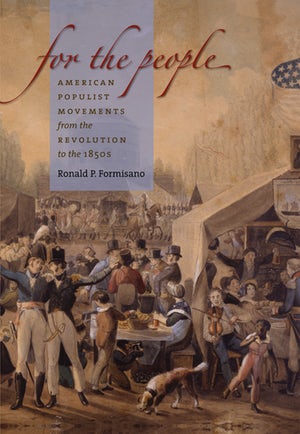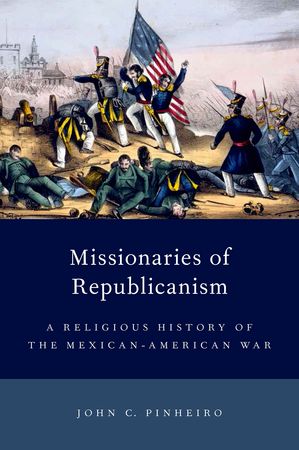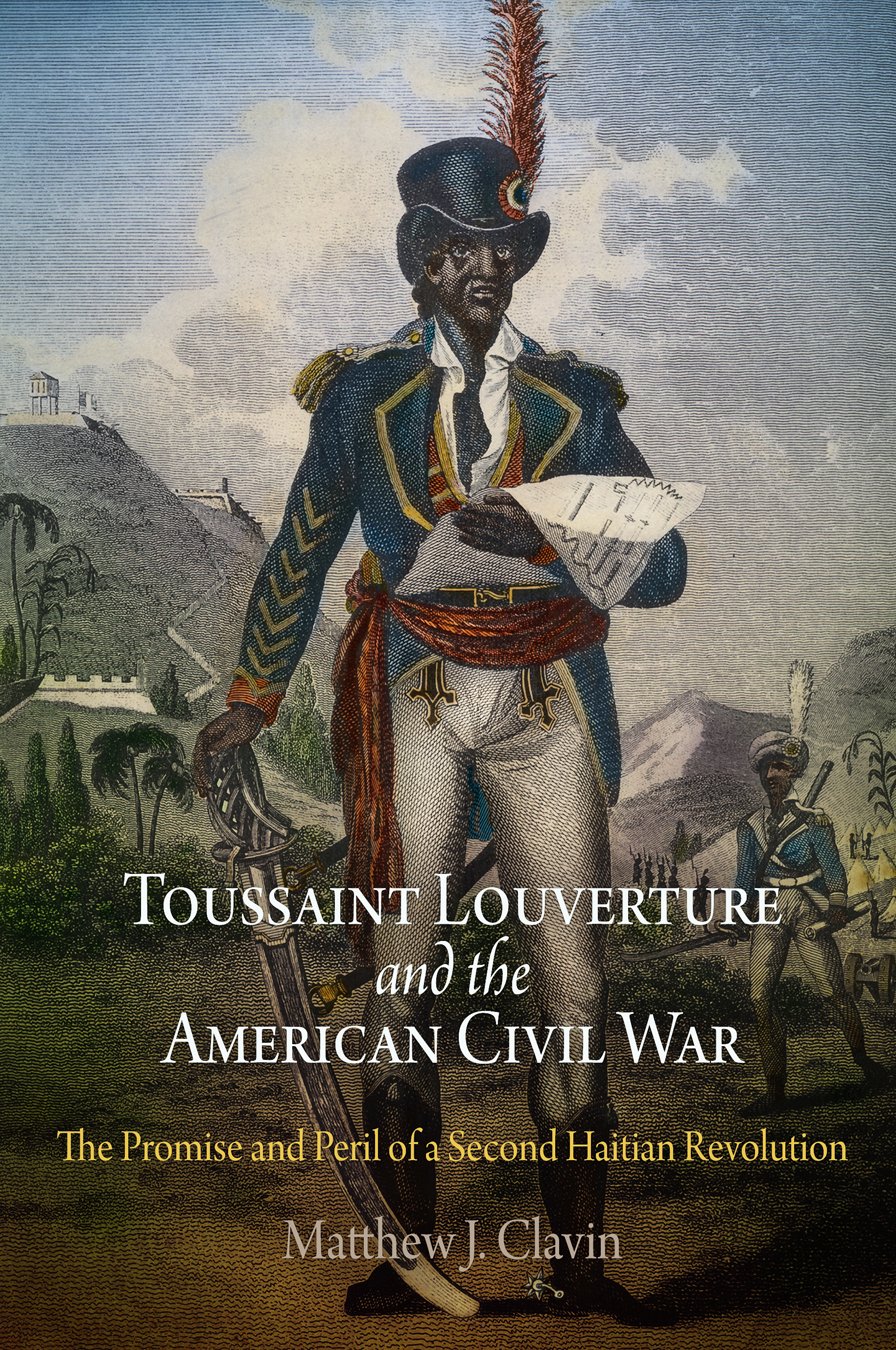The Web Library for this issue of Common-place features insights by four early-career scholars who work at the intersection of early American studies and the digital humanities. All four are recent graduates of or current students at Northeastern University, which is home to the NULab for Texts, Maps, and Networks. Benjamin Doyle (@dhscratch) is a PhD candidate in English at Northeastern University. He was a co-project manager and developer of the Early Caribbean Digital Archive (ECDA) and is currently the project manager of the TEI Archiving, Publishing, and Access Service (TAPAS). Elizabeth Hopwood (@LizzieHopwood) was a co-project manager and TEI director of the Early Caribbean Digital Archive and managing editor of Digital Humanities Quarterly; she is currently instructor in digital humanities and textual studies at the Center for Textual Studies and Digital Humanities at Loyola University Chicago. Jim McGrath (@JimMc_Grath) was project co-director of Our Marathon: The Boston Bombing Digital Archive and coordinator of the Northeastern University Library Digital Scholarship Group at Northeastern; he is currently a postdoctoral fellow in digital public humanities at Brown University’s John Nicholas Brown Center for Public Humanities and Cultural Heritage. Abby Mullen (@abbymullen) is a PhD student in global history at Northeastern University, where she is also a research assistant for the Viral Texts project.
These scholars of early American literature, history, and culture were asked to respond to a series of questions about their experiences working in the digital humanities (DH), how those experiences have shaped both their research and their careers, and what faculty and administrators should understand about graduate students who work on digital projects.
What drew you to digital scholarship in the first place? What has kept you involved in DH since then?
Benjamin Doyle
I love the way the digital humanities situates me and my work in the generative space between possibility and problem. Over the past five years, I have seen time and again how the problem-posing objectives of the humanities have much to offer computational, data-driven studies. I remain anxious about rhetorically positioning DH as a “solution” to the future of the humanities. Yet, DH has also taught me that our skilled practices in identifying sites of trouble and tension can also be responsive as a matter of responsibility. In this way, I feel DH has helped me become a more mindful and effective reader, researcher, teacher, scholar, and partner. At times, DH has felt quite removed from my traditional humanities work. But it has also significantly helped me develop skills applicable to both my DH and non-DH goals. I’ve benefited greatly from the support and, in no small way, patience, provided me by faculty, staff, and colleagues at my institution as I’ve sought to restructure my relationship to English studies while “entering” DH. I probably wouldn’t or couldn’t have continued down this path without the financial, technical, and intellectual resources made available to me along the way. My program has allowed me to attend a range of workshops and institutes, in-house and elsewhere, to develop a foundation in digital work. Our faculty has actively sought funding lines to allow me to carry on in my positions as project manager and developer on two major digital projects: the Early Caribbean Digital Archive (ECDA); and the TEI Archiving, Publishing, and Access Service (TAPAS). And my colleagues continually demonstrate to me the value of building intellectual partnerships across areas of interest and specialty while doing DH.
Elizabeth Hopwood
In 2011, when I first heard the whisper of this thing called “digital humanities” in Northeastern’s English Department, I was still struggling to use PowerPoint in my classroom. I in no way considered myself a digital native—my digital literacy peaked around Y2K—and I certainly had no experience in coding or Web development. At that time, Northeastern was beginning to offer a couple of DH courses for graduate students. As I was done with my coursework and in the beginning stages of dissertation writing, I never imagined DH would be something I’d become involved in—it was a next-gen movement. However, when an e-mail circulated around our department looking for research assistants to help on the early stages of a digital project to build an early Caribbean archive, I enthusiastically applied. As a nineteenth-century Americanist who writes about and studies literature and foodways in the Atlantic world, I saw this more as an opportunity to expand my research than to learn about digital archive building. Early on in the planning stages of the Early Caribbean Digital Archive, however, I recognized just how important this project was going to be to my field and that I had a unique opportunity to learn a new set of skills and to make contributions that went beyond my initial research interests. It wasn’t long before I found myself working at various levels across several major projects through our newly established NULab for Texts, Maps, and Networks. A lot of my technical training has occurred through a combination of workshops, tinkering, and trial by fire. I was fortunate to be at an institution with an investment in not only hiring DH faculty, but also in getting grad students involved in project building and management.
Jim McGrath
The first piece of “digital scholarship” I created was a fake Robert Frost Twitter account (@Robert_Frost) in the spring of 2009; I was a teaching assistant for a Special Topics course on Frost at Northeastern (where I was completing a doctorate in English), and I mainly created it to playfully tweak the poet’s canonical standing. I was an early adopter of Twitter, so I frequently found ways to work it and other social media platforms into my teaching. I thought of these sorts of exercises as diversions from my academic studies until the summer of 2012, when I met a number of “DH people” at the Futures of American Studies Institute (held annually at Dartmouth). These young, hip scholars convinced me that my interests in digital media and aesthetics were more than recreational. In the spring of 2013, I presented a paper on image macros and contemporary “Internet poetry” at a Northeastern University graduate conference, and I was (pleasantly) surprised to hear words of encouragement after my talk from Elizabeth Maddock Dillon, who supported my interests in digital media and would eventually go on to become my dissertation advisor. The most significant moment in my still-developing career as a digital humanist was being named project co-director of Our Marathon: The Boston Bombing Digital Archive, a crowd-sourced digital archive of stories, photos, and other media related to the 2013 Marathon bombings and their aftermath, in the fall of 2013. My work on this project (which began as a research assistant) led to an immersion in all things related to digital archives and digital humanities, and my current position as a postdoctoral fellow in digital public humanities at Brown feels like a natural progression from these scholarly investments.
Abby Mullen
I was not particularly interested in digital scholarship when I first started graduate school, but I did have familiarity with some aspects of digital work, such as Omeka, through other scholars. During my first semester at Northeastern, a faculty member, Ryan Cordell, who knew about my very clunky and amateur experiments, invited me to lunch with him and the dean, as well as a visiting scholar, to talk about digital things. That was my first realization that maybe I really could do digital work if I wanted to. The following semester, I was assigned to be part of the NULab fellows’ cohort as part of my fellowship in the history department. During the first NULab fellows’ meeting, when the faculty members were describing the various projects in the NULab, I first heard of the Viral Texts project, a project to detect reprinted texts across the corpus of Chronicling America. When it came time to select a project to work on, I jumped at the chance to work with Viral Texts (which happened to be headed up by Ryan Cordell and David Smith). And honestly, I’ve never looked back. I’ve begun to incorporate digital tools and techniques into my own work, but Viral Texts has been what kept me involved. I did a mix of programming, research, and writing for that project, and it moved me into areas (like programming) that I never thought I’d be able to do.
How has your involvement in digital scholarship affected your experience as a graduate student? How has it affected your coursework? Qualifying exams? Dissertation topic? Sources of funding? Relationship with faculty and fellow graduate students? Networking and other pre-professional activities?
Benjamin Doyle
The digital humanities has definitely helped ground me as a scholar and as a student, even if at times it has been a challenge to align my digital work with my academic responsibilities. It was toward the end of my coursework, as I entered exams, that I took up DH in earnest. I acquired very valuable foundations in DH through a couple of courses, practicums, and workshops. The bulk of my learning, however, has occurred across my role as project manager on two digital projects. These projects provided me with a renewed sense of purpose and have given me perspective about what I can and should be doing both professionally and intellectually. They have also provided me with added funding opportunities and have allowed me to build lasting partnerships with some really wonderful people. Working on TAPAS introduced me to new professional communities and taught me how to think and work more carefully and cooperatively on large-scale projects. I have been able to build relationships with faculty and staff across disciplines and departments at NU as well as at several other institutions. In my work on the ECDA, I’ve been able to develop my skills as a researcher and my familiarity with scholarly publication while learning to design digital environments that facilitate digital modes of literary practice. Being able to travel to conferences and participate in workshops in and outside the U.S. has introduced me to new scholarly networks and has afforded me access to a diversity of academic, technical, and cultural fields.
Elizabeth Hopwood
My involvement with digital scholarship has certainly enriched my graduate student training. It allowed me to take on leadership and managerial positions that I might not otherwise have had as a student. And it led to employment opportunities that otherwise would not have been possible. Moreover, it allowed me to find my niche within my own research and scholarly interests. That said, it took some maneuvering and strict time management to balance my DH project roles and responsibilities with my dissertation-writing self. My last year of graduate school was funded in part because of grants related to my DH work, so I felt a keen sense of responsibility to those projects which, in many ways, can start to feel more “real” or at least more time-sensitive than one’s own dissertation work. That is to say, I often felt the pull of imminent deadlines (for beta launches and development in ECDA, for instance, or to authors I owed e-mails to in my work as managing editor at Digital Humanities Quarterly), and had to routinely carve out time to write in order to successfully complete my dissertation. Working as project manager of DH projects also means wearing many hats: you’re both a student and a colleague to your own advisors. As a project manager, I became the expert of certain aspects of our site: meeting with faculty PIs felt collegial rather than the typical grad-student/professor relationship. I sometimes caught myself in a funny habit of addressing the PI of my project by first name when we were in correspondence about the project, and by honorific “Doctor” or “Professor” when requesting a meeting to review my latest dissertation chapter!
Jim McGrath
I would have given up on graduate school without the digital scholarly work that preoccupied my last few years at Northeastern. In earlier iterations of my dissertation work, I struggled to articulate my interest in material sites where American poetry is read, collected, anthologized, and at times digitized; with the aid of Ryan Cordell and Julia Flanders (among others), I found project models, critical frameworks, and new avenues of inquiry that shifted my dissertation project’s focus more explicitly to digital terrains. “DH faculty” at Northeastern were tremendously supportive of my work: “stupid” questions about digital humanities were answered patiently, e-mails were replied to in fewer than six months, and visits to their offices didn’t feel like trips to the principal’s office. I was encouraged (financially as well as intellectually) to attend digital humanities summer institutes and to submit work to major conferences in the field: for example, The NULab funded a trip to DH 2014 in Lausanne, Switzerland, so several graduate students could present posters there. I was also being financially supported by opportunities to work on digital projects (though in some instances, faculty members had to justify to admins why a student whose funding timeline had ended deserved these opportunities). In addition to faculty support, I was fortunate to be among a number of supportive graduate students who were similarly finding their footing in digital humanities work: We weren’t afraid to ask each other for help, we were all excited about our various projects and research, and we were all decent human beings. Library staff were also constant supporters before and after the creation of the library’s Digital Scholarship Group (I was fortunate enough to become the DSG’s coordinator in early 2016): in addition to the guidances of Julia Flanders (who is as amazing as the legends suggest), metadata specialists Sarah Sweeney and Dan Jergovic gave me a crash course in Dublin Core during my Our Marathon work, digital scholarship librarian Amanda Rust was always up-to-date on the newest digital projects and tools, and associate dean Patrick Yott taught me a ton about digital repositories. I essentially relocated from the English Department’s offices to the library for my last three years at Northeastern. I even had my dissertation defense in the library to honor the role it and its staff played in shaping my work.
Abby Mullen
Digital scholarship was probably the single most influential factor in my graduate school experience. Because I saw the power of digital tools while working for Viral Texts, I wanted to incorporate some of those same tools into my own work. Thus, I took all the digital history courses available to me, and I was the first graduate student in the history department to have digital history as a minor field. For my own work, the digital tool I’ll be using the most is mapping. My dissertation is structured so that each chapter incorporates a very comprehensive map that I’m building to give a spatial history of the First Tripolitan War (1801-1805). Being involved in digital history has also given me huge and important networking opportunities. For example, as a graduate student, I ran an NEH-funded workshop to introduce military historians to digital tools. I brought in experts in the field of digital history to teach about network analysis and mapping. Interestingly, this workshop would never have happened except that I attended a THATCamp at George Mason University, where I met Brett Bobley—the head of the National Endowment for the Humanities’ Office of Digital Humanities—and the seed of the idea for the workshop was planted.
How has digital scholarship shaped your practice/identity as a scholar and teacher?
Benjamin Doyle
One of the most valuable outcomes for me of working in DH has been how it’s reshaped my understanding of what it means to be a scholar and the meaningfulness of scholarly contribution. I have been able to identify new and exciting areas of participation in literary studies by seeing contribution occurring not just through traditional scholarly publishing but also through bibliographic and metadata research, digitization of historical content, and other alternative modes of scholarly composition. As a result of my digital work, I have also found new focus in areas of textual media studies and book history that now complement my approaches to Atlantic world literary studies. I’m in the early stages of developing my dissertation, but what started as a general interest in human rights and narrative has been reshaped into a closer study of interface, technology, writing communities, and something I’m referring to as the personality of text. My role on the ECDA has helped me to think more carefully about problematics of language, archive, textuality, and history. And I’ve been able to bring my study of North American and British literature into closer relation to early Caribbean studies as I’ve worked at various levels in the preservation, digitization, and curation of early Caribbean materials and in my role in responding to the research and analysis needs of this scholarly community. This work has also allowed me to contribute to co-authored publications about the development of the archive and about how DH work affects our teaching in the context of the nineteenth-century American literature classroom.
Elizabeth Hopwood
As a scholar, DH has helped me think more creatively about the life of a project and the life of my own research. My dissertation is a traditional one without a digital component, but my work in DH has trained me to imagine possibilities for its eventual second life: as a book but also as its own digital project (something I’m in the beginning stages of developing). My training and research in the digital humanities has taught me to think differently, more expansively, more carefully about the possibilities of the digital in humanistic inquiry, the form and function of literary studies, and the role that it can play within and beyond the classroom. I love the problem-solving and building aspects of DH work: project management, planning, conceptualizing, figuring out how all the parts fit together. I also greatly value the community that DH seems to engender: over Twitter, listservs, institutes, cities—the network of librarians, scholars, researchers, faculty, and graduate and undergraduate students is immensely valuable to me. Developing a digital archive has been among the most challenging and rewarding parts of my scholarship during my graduate training. It is work that requires me to think simultaneously as a humanities scholar, developer, and user, and to think at the level of the macro and the micro. DH also has attuned me to issues of access and accessibility in thinking about how knowledge is produced and disseminated. This is particularly important for me as a teacher, in thinking about everything from paywalls and open-access texts to how I might best provide appropriate scaffolding to students who might not have access to hardware and software, let alone technical know-how.
Jim McGrath
While I’ve heard that the phrase “public humanities” makes some people want to set their hair on fire, I’ve found that the investments many digital humanities practitioners place in public-facing work have been particularly important, and I try to explore the various implications and challenges of doing public humanities work in my courses and in my own projects. My work in Brown’s Public Humanities program at times might begin (and sometimes end) with digital initiatives aimed entirely at non-academic audiences (i.e. audiences who might not be looking to use materials or data for their own academic projects or publications). Or it might entail working with a range of collaborators—librarians, community organizations, undergraduates, archivists—with various ideas about the kinds of intellectual labor they’re invested in, interests that don’t always privilege scholarly monographs or the critical lenses privileged by my graduate training in, say, an English department. These digital projects require skill in project management and development, attention to design choices and interfaces and their impact on user experiences, knowledge of long-term preservation issues, and discussions about various forms of public engagement, among other factors. My interest in digital scholarship has also led me to focus more on a career in alt-ac, with positions in archives, libraries, and museums now more compelling to me as employment avenues than they were when I first began graduate school (I sometimes regret not going to library school; I’m considering a CLIR postdoc after my time at Brown is up, though it’s also been fun and challenging to do DH work outside the confines of a library). I’ve enjoyed the ways in which highly collaborative, public-facing digital work has forced me to question the value of many kinds of academic labor in various ways, and I appreciate the tremendous work that goes into defining the value of DH work to public audiences, students, faculty, and institutional higher-ups. I’ve also been fortunate to have been mentored by faculty members and librarians who are invested in the ethical dimensions of digital scholarship, as well as the idea that, at the end of the day, we’re all entitled to have lives that extend beyond our academic pursuits.
Abby Mullen
My association with digital scholarship has had two effects on my identity and practice. First, while I was doing coursework and was around my department more often, I was known as the “digital person,” so I was often asked to come and speak to classes about digital tools, or help others with their digital projects. In courses for which I was a TA, I frequently spearheaded digital projects as part of the course’s requirements. Second, it seems that my association with digital scholarship has actually pushed me down the alt-ac path. I recently started a new job at George Mason University in the Roy Rosenzweig Center for History and New Media, where I’m working as a project manager on a new digital tool to help researchers manage their archival photos. It’s a really important new project, and I anticipate working on it for a long time to come.
What advice would you give to current or future graduate students who are thinking about getting involved in digital scholarship? What advice would you give to faculty who are mentoring those students? To administrators who fund DH centers? To federal and private funding agencies (NEH, Mellon, ACLS)? To professional organizations, whether DH-focused or period-specific (C19, SEA, ADHO, etc.)?
Benjamin Doyle
My advice to graduate students entering into DH is to start small and aim big. As a first step, develop ties to the community by reaching out to both new and established practitioners through social platforms or in-person at your institution and nearby institutions. Don’t be afraid to ask questions or to introduce yourself to these new communities—you never know what friends and partners await you. Contact projects and scholars that work in areas that interest you, but do as much research as you can beforehand to show you are as invested as you are curious. Also, don’t be afraid to seek out financial support from your program and institution to attend institutes and workshops, and to fund your individual research. Graduate student labor is often invaluable to the success of digital projects, so feel confident negotiating fair compensation for your labor on others’ projects. It’s highly likely you will fall in love with DH and your digital work, but it’s important to keep a level head about how much time and energy you invest in such work to ensure you don’t lose sight of the equal value of your academic/dissertation goals. Plan early and often, and take time to re-plan just as often. My advice to faculty and administrators: don’t just seek to inspire your students in DH work, but model effective and sensible approaches to doing DH so they can develop strategies for becoming independent and confident scholars of the field and one day make the transition to becoming mentors themselves.
Elizabeth Hopwood
To graduate students: Get involved, but keep an eye on your own research! Don’t be daunted by a lack of experience or technical know-how. I’ve found that on-ramps exist at many levels, particularly in the form of enthusiastic mentors within and outside your own institution. That means: get on Twitter, play around with a Website, join a listserv, go to a THATCamp (or plan your own). You will probably need to devote some of your own time outside your institution learning the tools of the trade (tinkering with Python on the weekends or the command line between classes), so be OK with that. You won’t break the Internet, so try to build or design something just to see what happens. To faculty and administrators: Think carefully about how you see the role of graduate student labor fitting into the lifespan of a project. Talk openly about project management and various ways of doing it (managing projects, I’ve found firsthand, is not an innate skill to humanists). One of the toughest lessons I had to learn when I first became the project manager on the ECDA was that it was impossible to think about, discuss, or manage a digital project in a linear way, so plan for the unexpected and think both short-term and long-term. Ongoing training and check-ins are crucial to a project’s longevity, so the importance of building a strong and communicative core team of students, faculty, and library support cannot be overstated.
Jim McGrath
Graduate students: Take your time to learn about the long history of DH (and “humanities computing,” and whatever else it’s been called), think about how collaborative work challenges the lies you’ve been sold about how academic work gets done and why people should care about it, ask stupid questions, create a professional Twitter account but don’t overdo it (we all overdo it at first), find DH models (who do you want to be when you grow up?), talk to people doing cool DH work online and at conferences, do cool stuff, talk about the cool stuff you’re doing. Faculty: Offer intellectual support as well as advice on the professional state of things in DH; if you don’t know where people are getting jobs (or if you don’t know what “alt-ac” is), try to find someone on campus who does. Listen to students when they discuss the place of their labor on your project, at your institution, and beyond. Listen to librarians and archivists: many of them know a lot about this stuff, and they’ll be able to help your students if you acknowledge their expertise. Provide students with opportunities to define the value of their contributions to digital scholarship (and encourage them to practice these attempts at definition in more public contexts when relevant). Introduce them to your cool DH friends. Admins should create spaces where graduate students can collaborate in various ways on digital projects, be ethically compensated for their labor, and be supported by an established network of colleagues and training mechanisms. Funding agencies and professional organizations should help younger scholars navigate professional terrain (specifically, the expectations that digital scholars know everything about digital scholarship). In general, don’t be a jerk.
Abby Mullen
To students, I would say: You never know what might happen until you try. If you want to try something different from your prescribed path, just ask—you might be surprised what’s possible. To faculty, I’d say: Your students need sustained support from you. If they want to start a digital project, you have to give them support for more than just a semester or even a year. Digital projects take time, human resources, and money—even dissertation-based projects. Don’t let the glamour of the digital idea obscure the very real needs your graduate student still has. To administrators: Digital scholarship can be transformative. Fund projects that give graduate students the chance to do real work, make real contributions, and gain real competencies. To funding agencies: Sometimes graduate students’ skills go unnoticed or obscured when they have to work underneath a person with a PhD all the time on grant-funded projects. As one who has been the principal investigator in all but name on a grant, I know firsthand that graduate students are capable of doing the work of a PI. Therefore, I suggest that you consider relaxing your rules concerning the need for PIs to have PhDs, perhaps not in every grant category, but in some. To professional organizations: Supporting digital scholarship is a long-term commitment. One-off workshops or projects will not have nearly the same effect as a sustained commitment to scholars who are working digitally. At your conferences, make room for digital work in all your panels (not just the “digital” ones); offer THATCamps or workshops; offer presentation formats that are conducive to digital projects, such as posters or lightning talks. Offer micro-grants or fellowships to graduate students or early faculty for digitization or travel to workshops that will enhance their skills.
This article originally appeared in issue 16.4 (September, 2016).



